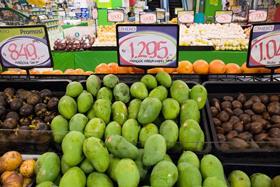
Small footprint convenience stores and minimarkets are winning the battle for retail market share in Indonesia at the expense of the country’s supermarkets and hypermarkets.
Minimarket store numbers rose by 63 per cent to 16,720 between 2008 and 2011, while store numbers for supermarkets and hypermarkets fell by 17 per cent to 1,229 over the same period, according to figures from the Retail Association of Indonesia (Aprindo).
“Our supermarkets are a money-losing business,” Setyadi Surya, director at retail chain PT Ramayana Lestari Sentosa, told Reuters.
“Our worst enemy is the minimarket. We are under siege in the greater Jakarta area as well as in Surabaya. Some of their products are even cheaper than ours.”
Convenience store chains such as Indomaret, Alfamart and 7-Eleven are emerging as the beneficiaries of the shifting shopper habits, while those losing out include international retailers such as Carrefour, and local chains like Hypermart and PT Ramayana Lestari Sentosa.
Indonesia’s growing middle class, which is driving the expansion of the country’s retail industry, is choosing to shop in smaller format stores of around 150-400m2, rather than 1,000m2-plus supermarkets and hypermarkets.
The smaller stores have managed to overcome the challenging logistics of Indonesian supply networks, the Reuters report said, while larger format chains are still struggling with distribution.
“The future for Indonesian retailers is the minimarket because we live in an island nation,” said Aprindo Vice Chairman Tutum Rahanta. “It’s a story of how the small slowly eat up the big players’ cake because they rapidly grow in local communities.”



